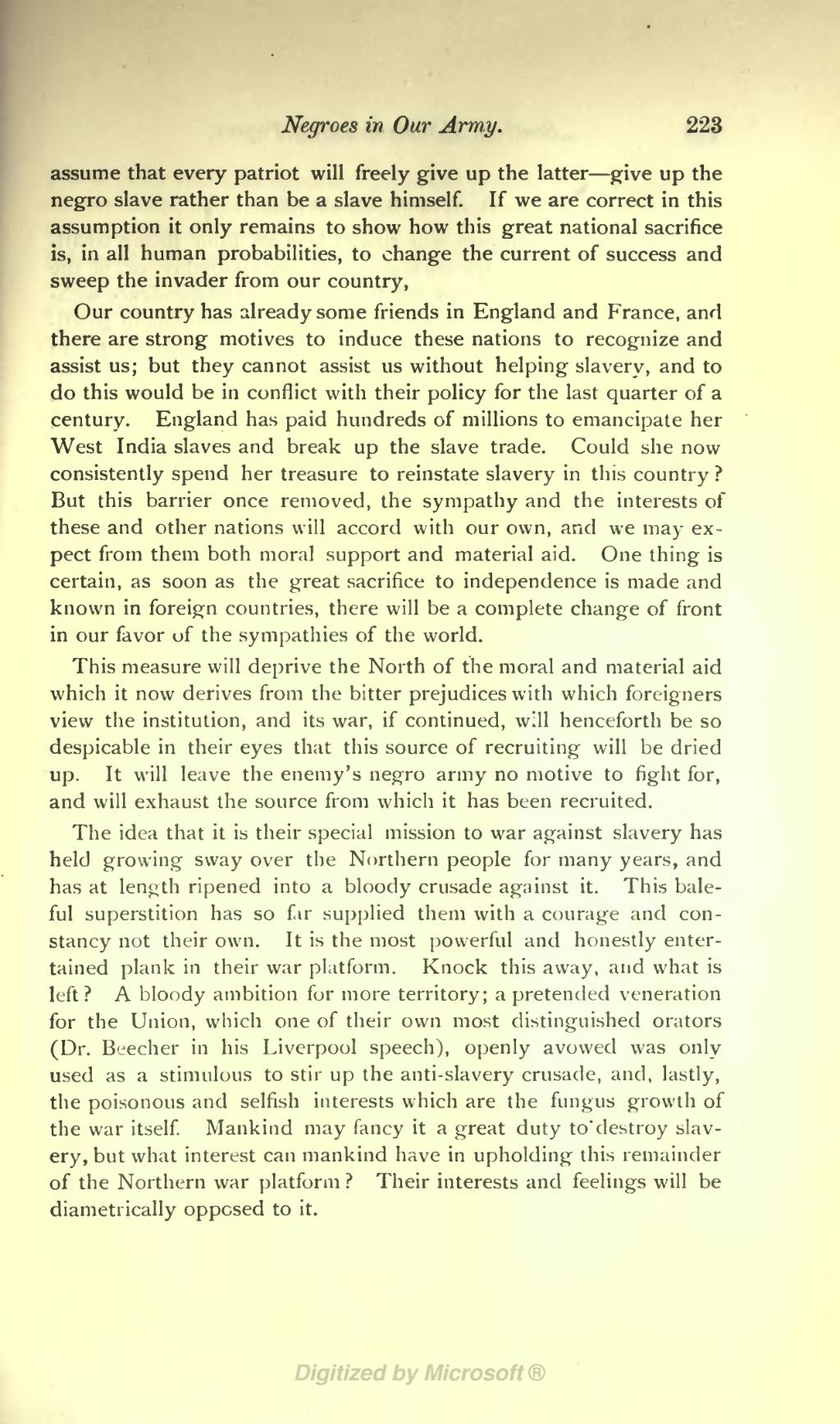Negroes in Our Army. 223
assume that every patriot will freely give up the latter give up the negro slave rather than be a slave himself. If we are correct in this assumption it only remains to show how this great national sacrifice is, in all human probabilities, to change the current of success and sweep the invader from our country,
Our country has already some friends in England and France, and there are strong motives to induce these nations to recognize and assist us; but they cannot assist us without helping slavery, and to do this would be in conflict with their policy for the last quarter of a century. England has paid hundreds of millions to emancipate her West India slaves and break up the slave trade. Could she now consistently spend her treasure to reinstate slavery in this country ? But this barrier once removed, the sympathy and the interests of these and other nations will accord with our own, and we may ex- pect from them both moral support and material aid. One thing is certain, as soon as the great sacrifice to independence is made and known in foreign countries, there will be a complete change of front in our favor of the sympathies of the world.
This measure will deprive the North of the moral and material aid which it now derives from the bitter prejudices with which foreigners view the institution, and its war, if continued, will henceforth be so despicable in their eyes that this source of recruiting will be dried up. It will leave the enemy's negro army no motive to fight for, and will exhaust the source from which it has been recruited.
The idea that it is their special mission to war against slavery has held growing sway over the Northern people for many years, and has at length ripened into a bloody crusade against it. This bale- ful superstition has so far supplied them with a courage and con- stancy not their own. It is the most powerful and honestly enter- tained plank in their war platform. Knock this away, and what is left? A bloody ambition for more territory; a pretended veneration for the Union, which one of their own most distinguished orators (Dr. Beecher in his Liverpool speech), openly avowed was only used as a stimulous to stir up the anti-slavery crusade, and, lastly, the poisonous and selfish interests which are the fungus growth of the war itself. Mankind may fancy it a great duty to" destroy slav- ery, but what interest can mankind have in upholding this remainder of the Northern war platform ? Their interests and feelings will be diametrically opposed to it.
